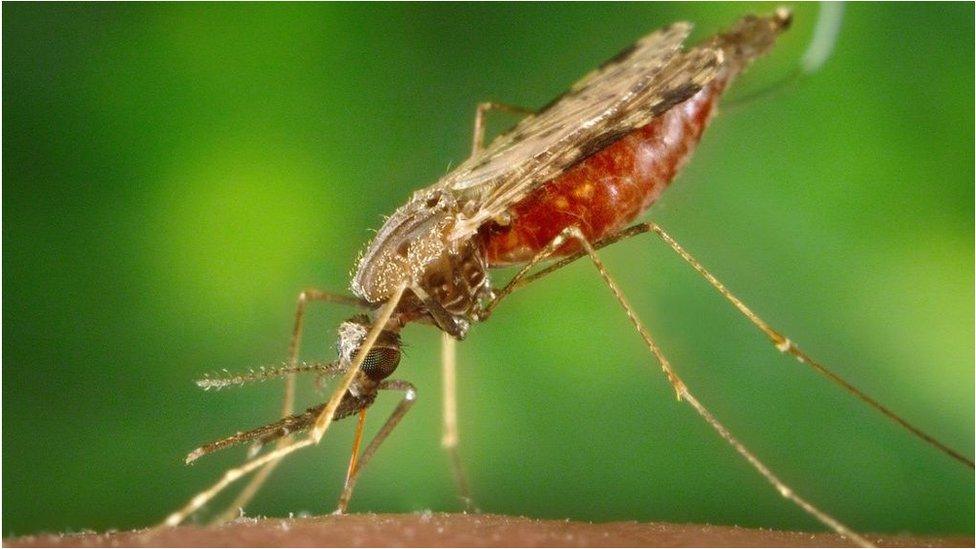Malaria vaccine roll-out in Ivory Coast aims to save thousands of young lives
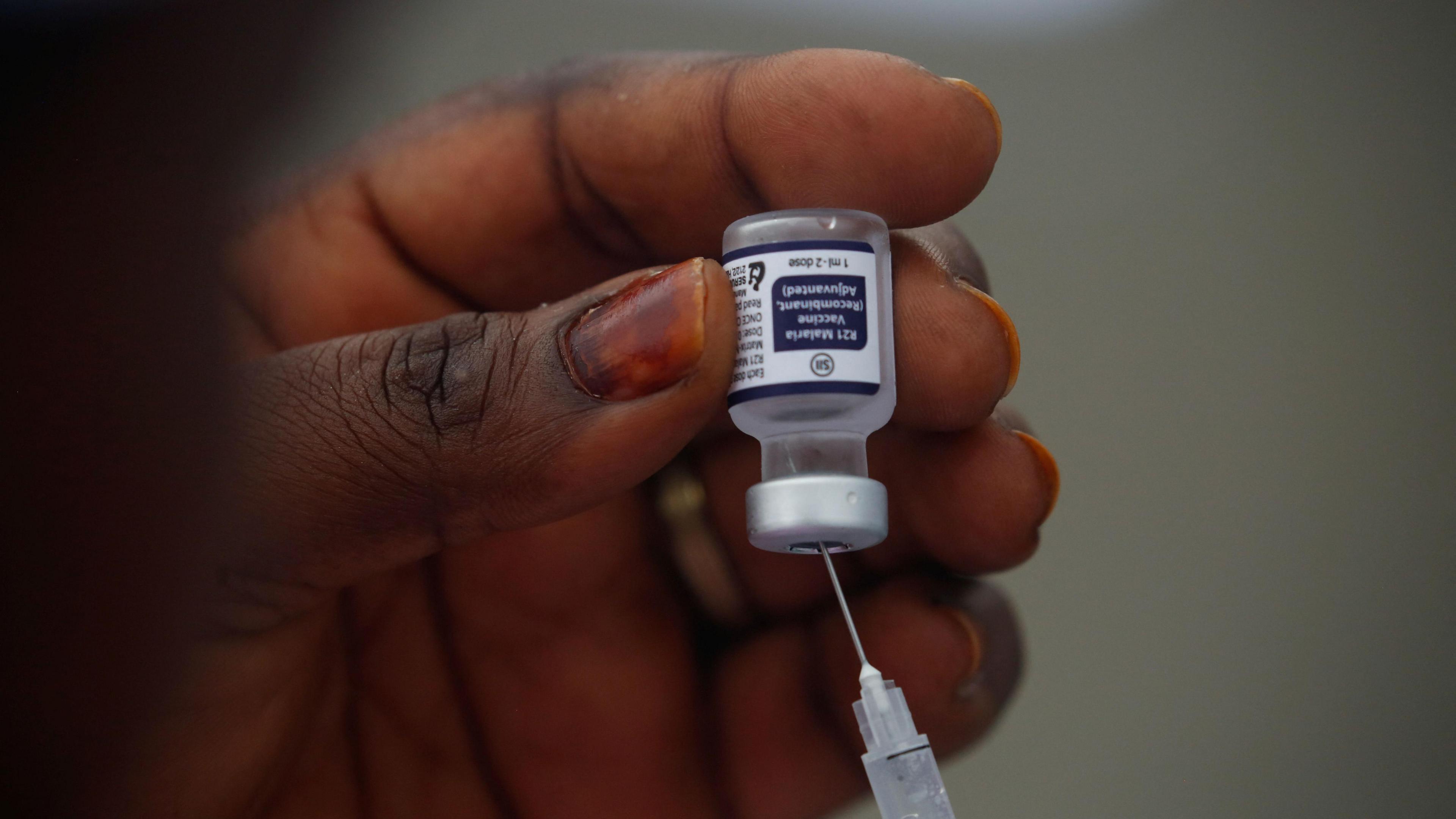
The vaccine was made in the UK and has started to be rolled out in the Ivory Coast
- Published
A new vaccine to protect against malaria could save hundreds of thousands of lives, a team at Oxford University in the UK says.
Malaria is a disease spread by a certain type of mosquito, and it's more common in parts of the world with hotter and more humid climates including Asia, South America and Africa.
Currently, over half a million people die of malaria every year, but the team behind this new jab hope to bring that down to 200,000 in the short term, and then eventually get rid of the disease altogether.
The new type of vaccine is getting its first roll-out in Ivory Coast right now.
More on malaria
Why is malaria such a big global problem?
- Published25 April 2024
World's first malaria vaccination programme launched
- Published22 January 2024
Ghana first country to approve Oxford University's malaria vaccine
- Published13 April 2023
The new vaccine is called R21/Matrix-M, and Sir Adrian Hill, professor of vaccinology at the University of Oxford, said he hoped its creation could lead to complete eradication of the disease.
This is because it's the first malaria jab to meet the World Health Organisation's (WHO) target of having a 75% success rate at preventing it.
The first doses of R21/Matrix-M were rolled out in the Ivory Coast in West Africa.
Ghana was the first country to approve the vaccine for use, but Ivory Coast is the first to actually have them given out.
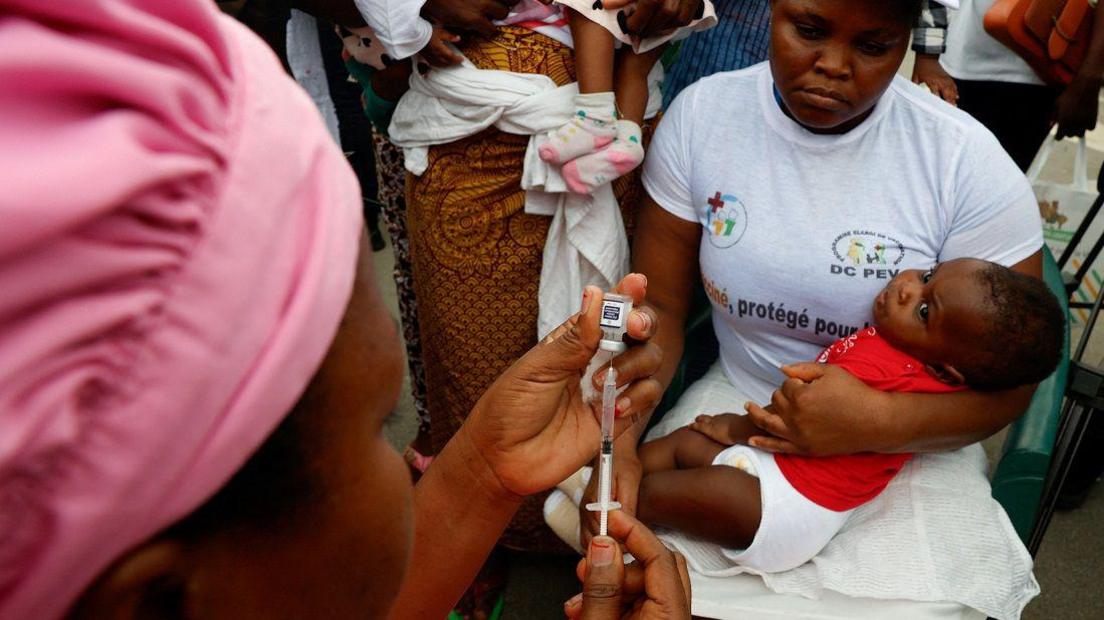
A baby waiting to get the new jab
R21/Matrix-M was developed under Sir Adrian at Oxford University's Jenner Institute, which is also where one of the UK's Covid-19 vaccines was made.
Sir Adrian said: "This is a vaccine that was designed and developed in 2012 and has been progressing since then."
He said it's much cheaper to make than other malaria vaccines, and so will be easier to roll-out in countries where it's needed.
"Instead of this being nine or 10 (US) dollars, as with the original vaccine per dose, this is just under four dollars, and that makes a real difference in low-income countries."
How does it work?
The vaccine is first given to children when they're five months old. They get three doses four weeks apart, and then a booster after a year.
These injections prevent people from getting malaria when they're bitten by a mosquito carrying the disease.
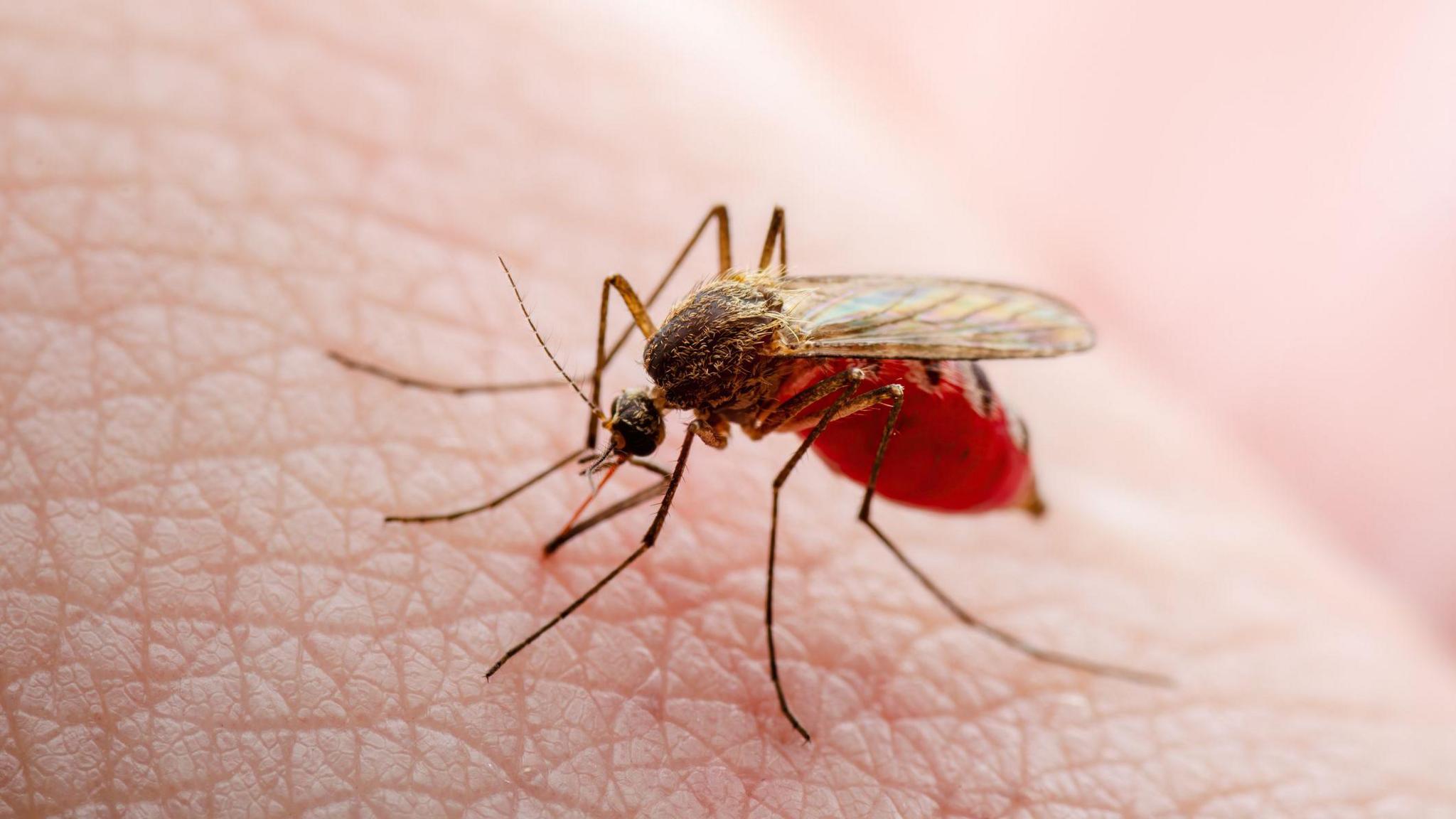
People get malaria if they're bitten by a mosquito carrying the disease
It does this by giving people's blood antibodies, which tiny proteins that our immune systems produce in response to bacteria and viruses.
They seek out and identify these invading organisms, attach themselves to the substance to fight it, and often block it from coming back.
- Published26 May 2021
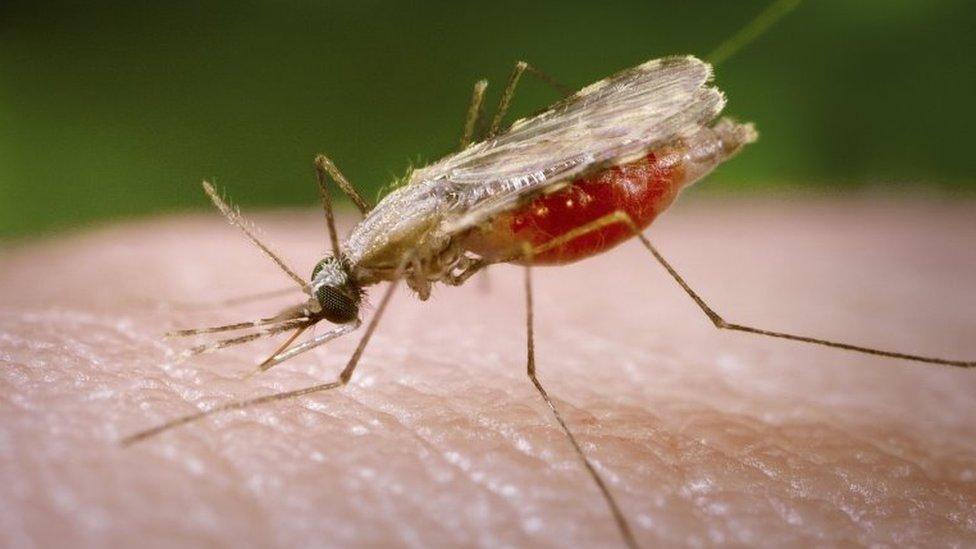
- Published23 April 2021
